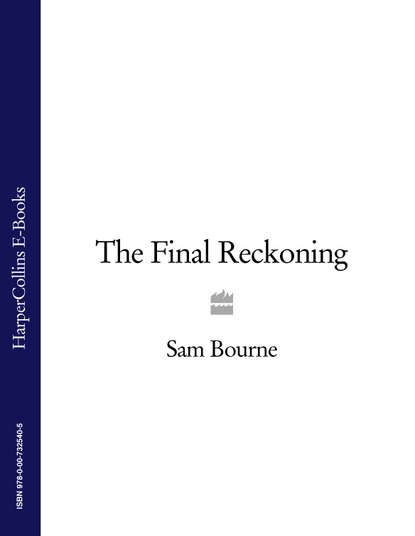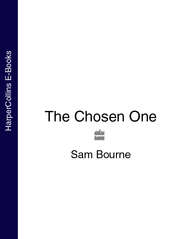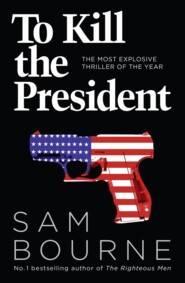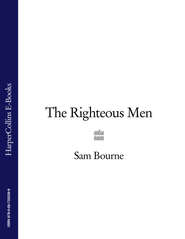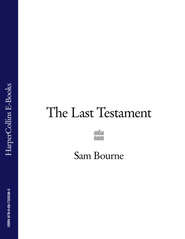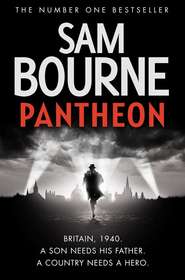По всем вопросам обращайтесь на: info@litportal.ru
(©) 2003-2024.
✖
The Final Reckoning
Настройки чтения
Размер шрифта
Высота строк
Поля
She reached for it and curled it invisibly into her right hand, a new resolve powering through her. He was too focused on his pleasure to notice her movement: she could hear him panting and moaning as he struggled to grip her hips and keep her still. She did not hesitate. In a single movement, she pushed back, pulling his arm away from her face with one hand and wielding the nail, held between her fingers like a blade, with the other.
She found his left arm, the one that had been gagging her, its underside exposed. The nail tore through the cotton of his shirt and scored down the flesh. She had never known such strength inside her. It made her roar, louder even than the scream he let out as he felt his arm ripped open.
She shook him away. Instinct made her flee from there as fast as she could, first in a crawl, then in a crouch, grabbing her clothes from the floor. She ran and ran, only noticing once she was three streets away that no one was chasing her. She later told me what she guessed, that the Wolf was too ashamed to admit that he had allowed a naked girl – a snivelling Jewess – to get the better of him. He would claim the deep gash in his arm, which took many weeks to heal, was the result of an accident.
But it was Hannah who was wounded. Not just her face, which was no longer hers. But her soul. She could not be our mother any more. She would stay all day and all night in our small room. I had to keep on working, even though I was now very thin and forever hungry. I would bring back what food I could, deciding at the gate whether I could risk bringing it in. If the guards were drunk, I would try it. If the Wolf was anywhere near, I would pass what I had hidden to someone braver, or more foolish, than me.
Then, in late October 1941, a decree was plastered on every wall and lamppost, announcing that all inhabitants of the ghetto were to gather at six o'clock the next morning at Demokratu Square. No one knew what was coming. All through the night you could hear different sounds coming from the street: religious men praying, women wailing, others feasting and getting drunk, as if to enjoy what they feared would be their last night of life.
I looked to Hannah for advice on what we should do. But she was not the same Hannah. Her eyes were empty, just as our mother's had been. I was the one who took charge, collecting up a few scraps of food, ensuring the girls wrapped up warm. We left our doors unlocked. Those were the orders: so that no one would try to hide.
There was a light dusting of snow on the ground that morning, sleet really, the gloom broken only by the odd candle or lantern. Everyone was holding on to papers, either a work permit or an educational certificate, anything which might prove they had some worth, that they could be of use to the Germans.
We waited in the damp cold for more than three hours until finally SS Master Sergeant Helmut Rauca stood on top of a mound, where he could survey the tens of thousands of people huddled there, and nodded for the first column of people to be brought before him. I noticed there were machine-gun nests all around the square; further away, on the hillsides, stood local Lithuanians, anxious to exploit the good view they had of proceedings.
Rauca was the man to watch. With the tiniest movement of his hand, he would send some people to the left, some to the right. My sisters and I were lucky: where we had been waiting turned out to be the front of the queue. But it meant I had no time to work out the pattern: was it good to be sent to the left or better to be directed right? I couldn't tell.
My sisters and I picked up Hannah and stepped forward. Rauca made a parting gesture: he wanted the girls to go to the right and me to the left. I protested that we had to stay together. ‘As you wish – to the right!’ he barked, with what I thought was a smile.
And then I felt a hand grip my shoulder.
‘Not you,’ a man's voice said.
I turned around to see a policeman. Not a German or a Lithuanian, but one of the Jewish policemen that worked in the ghetto.
I tried to wriggle away from him and join my sisters, who were now being shoved ahead. Rivvy was reaching out for me, but I couldn't grab her hand. Leah began to cry. It was no use though. The policeman was holding me back. ‘Not you,’ he said again.
I began to cry out, pushing and punching at him. How dare this traitor separate me from my sisters? I tried to pull his hand off me, but he held me tighter. Now Rivvy and Leah were screaming – they could see what was happening – but he would not let me go, no matter how much I struggled. My sisters were disappearing deeper into the thick scrum of people sent right by a flick of Rauca's finger. Rivvy and Leah had vanished. The last thing I saw were Hannah's eyes, vacant and staring.
The policeman finally pulled me off and frogmarched me away, down a side alley, until we were gone from the square altogether. I had no idea who this man was or why he had done what he had just done.
CHAPTER FOURTEEN (#ulink_5e4fe1d1-819d-55ea-9232-52ecb476a418)
Tom rubbed his eyes; the overnight flight was catching up with him. It had been a long time since he had read an individual story like this: case histories, they used to call them. When he had first started at the UN he would pore over such documents, absorbing each detail. After a few years, he would skim read them, seeking only the pertinent legal details. One person's horror story was pretty much the same as anyone else's. But he was reading this one attentively: must be out of practice.
The Jewish policeman – and you must remember we despised these traitors as much as we hated the Germans and the Lithuanians – left me there, where we stood. Once he was gone, I realized the street was completely silent. It was a terrible silence. It was quiet because all the people had gone.
I walked back to our little stretch of Linkuvos Street, past buildings that were now empty and still. I felt as if I was the last child on earth. Four thousand people had gone that day. Everyone else was either outside the ghetto, doing forced labour, or they were hiding. No one was on the streets.
I was twelve years old and I was all alone. I felt jealous of my sisters, imagining them living somewhere new.
I carried on working, still pretending I was sixteen. I did not dare tell even the other workers the truth about my age. Some were nice to me, as if they knew I was just a child. But some were so desperate they were no longer the people they had been. They were so hungry, they had become like animals. Such people would have betrayed me in an instant if they believed it would have made my ration theirs.
I lived in the same room we had shared, though now with a different family. The other lady and her children had been on the convoy to the Ninth Fort with my sisters. Now, the rooms were not so cramped. In fact, there was more space throughout the ghetto, because so many thousands had left. We did not know where they had gone or why we had not heard from them.
Nobody I knew was around. The children I had once gone to school with were all gone. The only familiar face belonged to that policeman who had stopped me getting on the convoy, that pig of a traitor. I only had to look at him to feel revulsion. And yet he seemed to be around often. I would return exhausted after twelve hours working on the building site, my legs and back aching, and there he would be, at the entrance to the ghetto. Or he would be patrolling outside the building where I slept. Sometimes he scared me, the rest of the time he just disgusted me.
Then one night there was a knock on the door. An urgent knock, three times, four times. At first, the woman in the apartment looked terrified. She believed it was the Gestapo. She glared at me in terror. What misfortune had I brought down on them? Had I been seen smuggling?
Then we heard the voice on the other side of the door. ‘Polizei, open up!’
It was the Jewish police of the ghetto. Everyone knew they could be as vicious as any Lithuanian collaborator. I looked over to the window, wondering if I should jump down onto the street and make a run for it. We were two floors up: could I drop down on the ground without breaking any bones? I saw that my hands were trembling.
Before I had even had a moment to make a plan, the woman had made her decision. She opened the door and there he was, the policeman who had pulled me off the convoy some three weeks before. Here, at my door, in the middle of the night.
‘You, boy, come now.’
I was frozen with fear. I did not move.
‘NOW!’
I was still wearing all the clothes I had. You did not dare take them off at night because they might be stolen. I let the policeman lead me away.
He marched me down the stairs and into the street, loudly promising to take me to the authorities for what I had done. I did not understand what I had done.
Eventually, he turned left and right, then into an alley and down an outdoor stairwell to the entrance of a cellar. This, I knew, was not the police headquarters. By now he had stopped shouting about how I was going to be punished. I felt the fear tighten in my stomach.
Then the policeman knocked on the door. Not a normal knock, but in a strange rhythm. Three quick blows, then two slow ones. A voice spoke on the other side of the tiny basement door.
‘Ver is dort?’ Who goes there?
‘Einer fun di Macabi.’ A son of the Maccabees.
The door creaked open and the policeman darted in, grabbing me with him. Inside were three other men, their faces lit by a single candle at the centre of a small, rotting table. To me they looked old, their eyes dark and sunken, their faces gaunt. But now I know they were young, one of them barely twenty.
They stared at me until one, who seemed to be the leader, said finally, ‘It's a miracle.’
Then another nodded and said, ‘He's perfect. Our secret weapon.’
The leader then spoke again, his face harsh. ‘Take off your trousers.’
I hesitated and he repeated it until I realized I had no choice. I lowered my trousers slowly.
‘All the way down! So we can see.’
And once they had seen, the three men all gave a small smile. One even managed a brief laugh. None spoke to me. ‘Well done, Shimon,’ they said and the policeman nodded, like a child praised by his teacher. ‘You have truly brought us a Jewish miracle.’
I had heard about the Jewish underground, but I had not believed it. The kids spoke about a resistance that was coming, how some Jews were trying to get guns to fight the Nazis, even to break out of the ghetto. But we had seen no sign of it. I believed it was a fairy tale, the kind of story boys tell each other.
Now though, I understood where I had been taken. The policeman had called himself a ‘son of the Maccabees’: that had been the password. I knew that the Maccabees had been the great Jewish fighters, the Hebrew resisters who had battled to save Jerusalem.
I was a blond-haired, blue-eyed boy with an uncircumcised penis. I could pass for an Aryan. Perhaps they would use me to smuggle food into the ghetto. I was excited; I knew I could do it. After all, had not Hannah sent me out as a little Lithuanian orphan boy, to beg from our gentile neighbours who might take pity on a gentile child?
But then the leader of the men sent Shimon away and began whispering in Yiddish with the others, oblivious to the fact that I was still there, standing right in front of them. One said they could not afford to wait: ‘The boy has seen our faces.’ Another nodded. ‘He knows about this place. We can't afford to risk it.’ I did not know what they were going to do to me.
Finally, the leader raised his hand, as if the discussion was over. He had reached a decision. Only then did he turn and look straight at me. He told me his name was Aron. ‘Are you brave?’ he asked.
‘Yes,’ I said.





